Terra Carta Design Lab Finalists
See below to learn about the 10 RISD student-led projects selected for the Terra Carta Design Lab (TCDL) finalist shortlist—projects that showcase a wide breadth of innovations and solutions to help address the climate and biodiversity crisis.
RISD’s Terra Carta Design Lab finalists were selected by a diverse and dynamic panel of jurists from RISD and beyond, including designers, architects, scientists, material researchers and public art curators.
Before their selection, these teams took workshops ranging from AI as a Business Collaborator to Design for Collective Liberation with partners including Dada Goldberg, Holly Howard and Slow Factory. In addition, teams had one-on-one access to mentorship from project advisors and participated in sessions led by RISD’s own Center for Complexity and Edna W. Lawrence Nature Lab. These sessions featured guest critics from around the country who specialize in messaging, venture-funded design processes, scientific feasibility and sustainability.
The top 10 finalists’ work featured below showcases a breadth of innovations and interventions, including supply chain traceability, regenerative yard practices, biomaterial innovation, sustainable food practices, construction industry material sourcing solutions and interdisciplinary environmental education.
Read more in our June 26, 2024 press release.
2024 TCDL winners
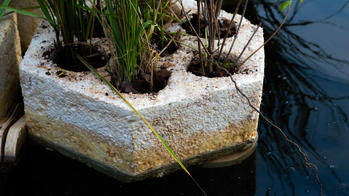
Cofounders: Manini Banerjee 24 ID, Avantika Velho 22 ID
Team members: Malvika Agarwal 22 GD, Skylar Perez MArch 23, Joel Yong 25 ID, Dr. Katia Zolotovsky, Academic Affiliate
Biopods are human-scale ecosystem modules that remediate water quality, reintroduce vital fringe marshes into urban environments and engage the public in citizen science.
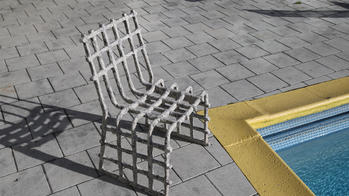
Founder: Felicia Neuhof MArch 24
Team members: Jason Connell MFA 24 FD, Aleza Epstein MArch 24
Shellf Life transforms discarded mollusk shells into a groundbreaking biomaterial, offering a versatile, sustainable and aesthetically captivating alternative to conventional materials across diverse applications, thus fostering collaboration and redefining the relationship between the built environment and nature.
Other top 10 finalists
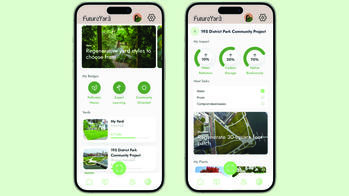
Founder: Isabelle Saxton 20 AP
Reorienting our connection to earth, the community-focused FutureYard app simplifies regeneration and empowers people with access to green spaces to increase native biodiversity, soil health and carbon storage.
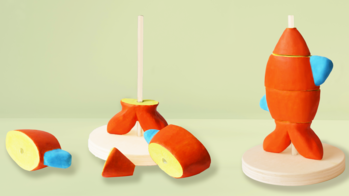
Hoppi
Leads: Luca Cuccia and Natalie Rizk MArch 22
By transforming brewery waste into 100% biodegradable, nontoxic toys, Hoppi reduces the amount of plastic entering the environment and minimizes the toy industry’s carbon footprint.
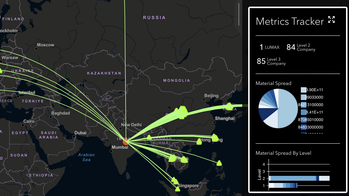
Founder: Tara Gupta 19 FAV
Team members: Piyush Gambhir, Issac Hicks, Jugal Shah
Map Collective provides corporate and government sustainability and supply chain teams with a software solution that automates supply chain transparency, sustainability metrics tracking and decarbonization planning, and procurement decision making using AI and data mining.

Lead: Dway Lunkad 24 SC/FAV
Team members: Shagun Jain 23 ID, Felix Arwen 23 ID
Aiming to reframe the conversation about plastics manufacturing and new materials development in the 21st century, SHAPESHFT uses discarded mixed plastics to create a usable artistic medium for producing public art, sculptures, and research materials to help localized arts production.

Cofounders: Westen Johnson 19 ID, Julie Joo 19 ID
Soilless is an affordable and sustainable indoor garden system that empowers everyone to grow their own fresh, healthy and sustainable food.
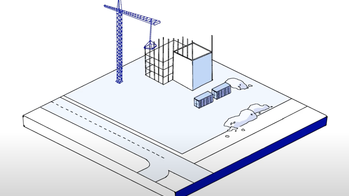
Cofounders: Aanya Arora BArch 24, Michael J. Farris BArch 23
By providing a peer-to-peer marketplace that connects buyers and sellers in real time, this consolidated logistics platform addresses the critical issue of waste influx in the construction industry. SURPLUS streamlines the surplus material and procurement cycle, allowing contractors to offload surplus materials efficiently.
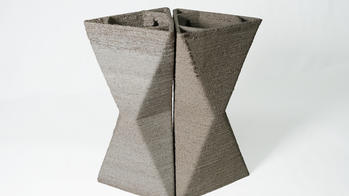
Founder: Yechen Zhu MID 24
This project explores biocements for binding construction and demolition wastes produced in urban spaces, creating recyclable materials that enhance comfort while preserving traditional characteristics and extending the life of clay.
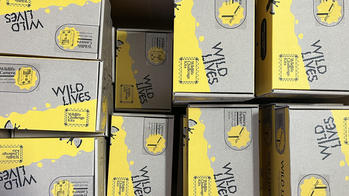
Leads: Reilly Blum 21 FD, Jasmine Gutbrod 20 FD / MA 21 AE
Wild Lives is an interdisciplinary environmental education movement using trail cameras to encourage youth to actively observe, explore and connect to local ecosystems. As they gather footage of wildlife, students analyze their findings through creative mapmaking, scientific illustration and storytelling.